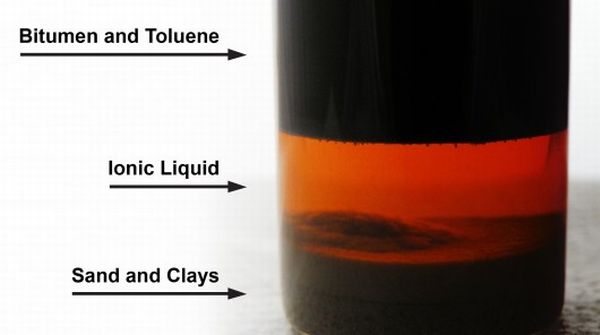
The US economy is heavily dependent on oil but the demand of oil in the US is much more than the supply and so the country is forced to import oil from other countries. The US imports approximately one million barrels of oil per day from Canada, while half million barrels are imported from Saudi Arabia, the world’s largest oil producer. Majority of the oil which is imported to the US comes from tar sand deposits, in which a tar-like form of crude oil, also known as bitumen is found combined with sand. The tar sands commonly called oil sands are opposed by environmentalists as the process used for extracting oil from sand disturbs the ecological balance of the mined region.
The environmentalists can rest easy now as researchers from Penn State University have designed a technique that can reduce the environmental impact of the process.
Currently, sand is separated from the bitumen by the addition of warm water into the mixture. After the addition of the warm water, the mixture is then agitated vigorously. The water used in the agitation is often drawn from nearby water sources like rivers and ponds, which puts extra pressure on the water bodies. Hang on, the ordeal does not end here as the polluted water is then diverted back to the water bodies.
Scientists have now come up with a technique which can help maintain the ecological balance. The method proposed by the Penn State researchers utilizes room-temperature ionic liquids (ILs), which are introduced to the sand/bitumen mixture and shaken. The shaking goes on for few minutes and it leads to the settlement of the mixture into three distinct layers: the bottom layer is of oil-free sand, the middle layer is made up of ILs, while the bitumen is on the top layer (refer to the image for the layering). Once the bitumen rises to the top, it can be easily taken out for refinement and the ILs can be reused. The sand which settles at the bottom layer can be returned to the environment.
The technique looks promising. If it proves successful for bulk refining, then it will be a boon for the environment and will go a long way in maintaining the ecological balance without affecting the production of oil.
Source: Gizmag




